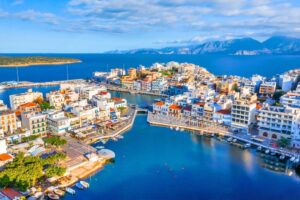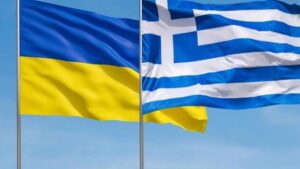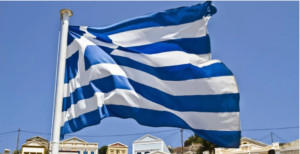
The Greek tax authority AADE is tightening control over short-term rentals through Airbnb, Booking.com, and Vrbo: owners and managers of properties must verify and finalize their 2025 income data in the short-term accommodation registry by February 28, 2026, including the distribution of income among beneficiaries, amounts, and the correctness of the property registration number (AMA).
According to AADE, 2.2 million initial declarations were submitted for 2025, and the total declared income amounted to EUR 870 million (+16% y/y). At the same time, tax authorities warn that if the data is not confirmed and corrected on time, it is possible that tax will be levied on 100% of the income specified in previous declarations, even if part of the amounts was not actually received (for example, due to cancellation of reservations).
From the beginning of March 2026, AADE will launch cross-checks based on data provided directly by the platforms. If unregistered properties or properties without AMA in the listings are found, sanctions will be imposed: fines ranging from EUR 5,000 to EUR 20,000, as well as removal of listings from platforms until the violations are rectified.
Against the backdrop of the segment’s growth, the authorities are tightening requirements for correct registration and compliance with the rules for maintaining a presence in the register.

Bulgaria, Greece, and Romania have agreed to prepare a joint application for European funding for a high-speed railway line along the “Western Axis” Athens-Thessaloniki-Sofia-Bucharest, according to the Bulgarian publication Sega.
According to the publication, the initiative was discussed at a meeting between representatives of the three countries and the European Commission in the context of the development of the North-South transport corridor, which is intended to connect the Baltic, Black and Aegean Seas. The meeting was hosted by Bulgarian Deputy Prime Minister and Minister of Transport Grozdan Karadzhov.
Greek Transport Minister Konstantinos Kiranakis said that by 2027, it is planned to provide high-quality passenger rail service between Thessaloniki and Sofia, while the Bulgarian side recalled that rail service on this route was interrupted in 2017.
Karadzhov also noted that the countries intend to synchronize planning, design, and permitting procedures to avoid delays and bureaucratic obstacles. Among Bulgaria’s priorities, he highlighted the acceleration of the project for a new bridge across the Danube between Ruse and Giurgiu, as well as the preparation of projects for new bridges in the Nikopol-Turnu Măgurele and Silistra-Kelerashi areas; the restoration of ferry connections on the Danube, including the Ruse-Giurgiu line, was also mentioned.
According to Sega, Romanian Transport Ministry representative Ionut Cristian Savoiu named among Romania’s priorities the modernization of the existing Giurgiu-Ruse bridge, the construction of a new Danube bridge, and the development of road and rail lines, as well as improvements on the Vidin – Calafat – Craiova section for better connectivity with Ukraine and Moldova.

The Greek authorities plan to pass a law in January 2026 reforming the Golden Visa program for investors in order to speed up the processing of applications and eliminate the problem of “backdating” the validity period of residence cards.
The key change concerns the calculation of the five-year validity period of the residence permit: currently, it is often counted from the date of application, which means that due to lengthy processing of documents, the actual validity period of the card obtained is less than five years. It is proposed to start counting from the date of issue of the card so that holders receive the full five-year period from the date of actual receipt of the document.
The reform is also aimed at reducing the administrative burden – it is planned to simplify the procedures for extending permits and reuniting families by reducing the number of stages of consideration.
According to IMI Daily, the number of pending applications under the program exceeded 49,000 in July, although the pace of processing applications has accelerated significantly in 2025. The Golden Visa program provides investors with a renewable residence permit, and in 2024-2025, Greece has already changed the parameters of the program, including real estate investment thresholds and transitional conditions.
Source: http://relocation.com.ua/greece-changes-rules-for-obtaining-golden-visas-from-january/

Moldova’s National Energy Regulatory Agency (ANRE) has introduced two new routes through its gas transmission system (GTS) for gas transit from Greece to Ukraine, the regulator said.
“These products (supply services) are designed to facilitate natural gas flows from Greece to Ukraine through the Trans-Balkan infrastructure, contributing to the strengthening of regional energy security, diversify supply sources, and make efficient use of transport capacity, in accordance with the request of Vestmoldtransgaz LLC (Moldova’s GTS operator) and a joint initiative by the natural gas transmission system operators of Greece, Bulgaria, Romania, Moldova, and Ukraine,” the ANRE said in a statement.
The regulator specified that this refers to “two new special capacity products – Route 2 and Route 3, which will be available from December 2025 to April 2026.”
The new services will be offered monthly through parallel auctions on the RBP platform using a single price algorithm, with discounts applied to the tariffs of transit country operators. “The introduction of these products will increase gas transit volumes through Moldova’s transmission system and indirectly create the conditions for optimizing natural gas transportation tariffs in the future,” the statement said.
The regulator recalled that in May this year, a monthly service product called “Route 1” was introduced, designed for use at interconnection points on the Trans-Balkan pipeline connecting the natural gas transportation systems of Greece, Bulgaria, Romania, Moldova, and Ukraine.
As reported, in May this year, gas transmission system operators in Bulgaria, Greece, Moldova, Romania, and Ukraine developed a scheme for the supply of American liquefied natural gas (LNG) from Greece to Ukraine via the “Vertical Gas Corridor,” agreeing on a single tariff for gas transit with a 25% discount. The aim of the project is to ensure gas injection into Ukraine’s underground gas storage facilities in preparation for the heating season.
In July, Moldovan Energy Minister Dorin Jungiatu reported that the Moldovan state-owned company Energocom had successfully tested the delivery of LNG from the US via the Vertical Gas Corridor, pumping regasified fuel from a port in Greece to Ukraine’s underground gas storage facilities.
In early November, pipeline company ICGB, the independent operator of the Greece-Bulgaria interconnector (IGB), together with the gas transmission system operators of Greece, Bulgaria, Romania, Moldova, and Ukraine, signed an agreement to launch two new routes for the delivery of natural gas from Greece to Ukraine. The gas transmission system operators of these countries proposed to make these routes available from December 2025 to April 2026.
According to ICGB, route 2 starts at the Amphitrite interconnection point on the DESFA network, passes through the Greek-Bulgarian interconnector (IGB) and then along the Trans-Balkan corridor: Amphitrite – Komotini (IGB) – Stara Zagora – Negru Voda 1/Kardam – Isaccea 1/Orlovca – Câșcavii – Grebeni.
Route 3 starts at the IGB interconnection point with the Trans Adriatic Pipeline (TAP) and follows the same route: Komotini (IGB entry from TAP) – Stara Zagora – Negru Voda 1/Cardam – Isaccea 1/Orlovca – Câșcav – Grebeni.
The design capacity of the “Vertical Gas Corridor” in the Greece-Bulgaria direction is 3 billion cubic meters per year. The gas pipeline operator does not rule out increasing its capacity to 5 billion cubic meters, depending on market interest.

The agreement with Greece on gas supplies to Ukraine is part of a large energy package prepared for the winter, and gas supplies will begin in January, Ukrainian President Volodymyr Zelensky said.
“Gas supplies will begin in January, and it is important that our first agreements will be implemented in the first quarter. In addition to the agreement on operational gas supplies, there are also urgent agreements,” Zelensky said during a press conference in Athens on Sunday.
The president noted that he discussed this today with Greek Prime Minister Kyriakos Mitsotakis. In addition, he thanked the US for the opportunity to receive not only gas through Greece, but also energy from the United States.

The Greece Golden Visa program, in effect since 2013, offers residency in Greece (and access to the Schengen area) in exchange for investment.
Key points of the program.
1) Real estate investment: the minimum threshold starts at €250,000 in less popular areas.
2) However, in August 2024, a differentiated threshold was introduced for popular areas: in Attica, Santorini, Mykonos, and other areas, it rose to €800,000.
3) Discounts are possible: for properties requiring renovation or conversion, the threshold remains €250,000.
4) The visa is issued for 5 years, with the possibility of extension if the investment is maintained.
5) The visa holder can include their spouse, children under 21, as well as parents and parents of their spouse without having to prove dependency.
Current trends and investor interest
Following the closure of the “golden visa” program in Spain and other countries, Greece is becoming one of the main destinations for investors, and interest from Americans has already grown significantly.
The procedure for issuing a residence permit is becoming faster — in some cases, residency is granted in about 60 days.
http://relocation.com.ua/golden-visa-greece-features-of-the-program-from-relocation/